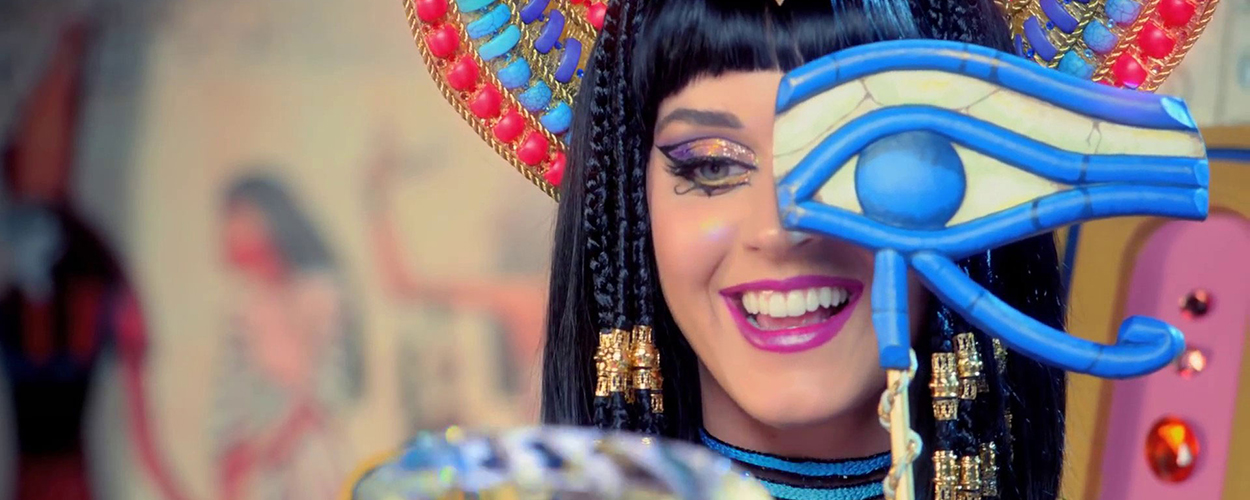This website uses cookies so that we can provide you with the best user experience possible. Cookie information is stored in your browser and performs functions such as recognising you when you return to our website and helping our team to understand which sections of the website you find most interesting and useful.
Artist News Business News Labels & Publishers Legal Top Stories
Appeals court sides with Katy Perry in Dark Horse song-theft case
By Chris Cooke | Published on Friday 11 March 2022

The Ninth Circuit appeals court in the US yesterday sided with Katy Perry in the big old ‘Dark Horse’ song theft case. The musical elements Perry’s hit has in common with earlier track ‘Joyful Noise’ were “commonplace” and therefore not protected by copyright in isolation, judges concluded. The ruling confirms that the US appeals court where many song-theft disputes end up remains cautious about over-extending copyright protection in a way that could hinder the songwriting process.
Christian rapper Marcus Gray sued Perry and her songwriting collaborators all the way back in 2014, arguing that her 2013 hit ‘Dark Horse’ ripped off his 2008 track ‘Joyful Noise’. The two songs both contain the same repeating ostinato, described by the Perry side in legal filings as “merely two pitches that repeat – a C and B note – on evenly spaced notes, in a sparse setting, played on a synthesiser”.
When the dispute ended up before a jury in the Californian courts, they sided with Gray, concluding that ‘Dark Horse’ did indeed infringe ‘Joyful Noise’. They then ordered Perry et al to pay Gray and his team $2.8 million in damages. However, the judge overseeing the original case – Christina Snyder – then overturned the jury’s decision on the basis that the Gray side’s arguments that the shared ostinato was protected by copyright in isolation failed as a matter of law.
Synder’s March 2020 decision came shortly after the Ninth Circuit’s landmark ruling on the ‘Stairway To Heaven’ song-theft case, which arguably set a precedent on the copyright status of short musical segments, concluding they don’t usually have copyright protection.
Perry’s team had used that ‘Stairway’ judgement to bolster their case for why Snyder should overturn the jury’s conclusion, stating that that Ninth Circuit decision provided “an extended defence of why copyright law doesn’t cover ‘common musical elements’ and basic ‘building blocks’”, because doing so “might ‘curtail the creation of new works’”.
Nevertheless, Gray decided to appeal to the Ninth Circuit court, arguing that the jury got it right in his specific song-theft dispute, and that Synder should not have interred in their ruling. Both sides then presented arguments as to why Synder’s decision should be overturned or upheld in front of the Ninth Circuit judges in January.
During that session it seemed likely that the appeal judges would ultimately side with Perry, they noting that Synder was empowered to make decisions regarding whether or not elements of a song are protected by copyright, often referred to as the ‘extrinsic test’. They also seemed to be erring towards agreeing with Synder that something as short and simple as the ostinato shared by Perry and Gray’s songs couldn’t be protected by copyright.
And, in a ruling yesterday, all of that was confirmed. Summarising their judgement, the judges said: “The panel held that copyright law protects musical works only to the extent that they are ‘original works of authorship’. The panel concluded that the ostinatos at issue here consisted entirely of commonplace musical elements, and the similarities between them did not arise out of an original combination of these elements”.
“Consequently”, they went on, “the jury’s verdict finding defendants liable for copyright infringement was unsupported by the evidence because plaintiffs failed to put forward legally sufficient evidence that ‘Joyful Noise’ and ‘Dark Horse’ were extrinsically similar works with respect to any musical features protectable under copyright law”.
Following on from the Ninth Circuit’s ruling on ‘Stairway To Heaven’, this judgement does seem to set a precedent in the US that where two songs share certain musical elements, that in itself is not grounds for copyright infringement – because those musical elements in isolation likely are not protected by copyright – unless the original song combines those elements in an original way, and that combination of elements is copied.
And some would argue that these two judgments together pretty much close the door that some felt the ruling in the ‘Blurred Lines’ song-theft case opened, with that case arguably making it easier for the writers of old songs to hold the writers of newer similar songs liable for copyright infringement.
Of course, Gray could now try to take the matter to the US Supreme Court. Following yesterday’s ruling, his attorney Michael A Kahn told Billboard: “The notion that this simple, original and clearly distinctive eight-note melody can’t be protected by copyright runs contrary to a series of simple and clearly distinctive eight-note opening melodies, including Dave Brubeck’s ‘Take Five’, The Rolling Stones’ ‘Satisfaction’, and, of course, the eight-note opening to Beethoven’s ‘Fifth Symphony’. We are considering our options”.





